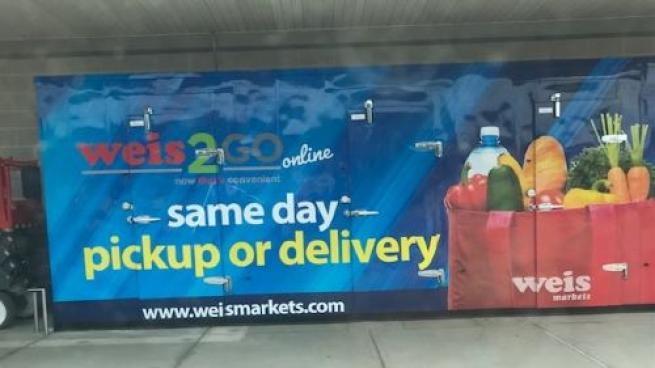Shoppers Increase Frequency of Grocery Pickup

Many American are still opting for the convenience of online grocery shopping almost two years after the market experienced an extreme uptick due to the COVID-19 pandemic. During November, nearly 69 million U.S. households bought groceries online, whether a full basket of goods or just a few items, a 15% jump versus November 2020, according to a Brick Meets Click/Mercatus Grocery Shopping Survey fielded Nov. 29-30. Sales for the online grocery market generated $8.6 billion last month — including $7.0 billion from the pickup/delivery segments.
The pickup segment continues to dominate. Brick Meets Click/Mercatus found that pickup grew dollar sales 29% versus last year, far outpacing delivery’s 6% growth for the same period. Together, these two methods accounted for 81% of dollar sales in November 2021, compared with 73% of total sales a year earlier, while ship-to-home sales plummeted 27% in the past 12 months, reflecting changing buying patterns.
“Even as total online grocery sales increase, some conventional and regional grocers have reported softer sales performance during November, which is why looking at the broader e-grocery market is so important for identifying specific opportunities for improvement,” said David Bishop, partner at Barrington, Ill.-based Brick Meets Click. “For example, not offering pickup is likely to weigh on sales growth.”
Bishop also cites failing to attract early-stage family households and not providing a shopping experience comparable to mass rivals as factors that can hurt grocers’ online performance.
One-third of monthly active users (MAUs) are in the 30-to-44-year-old age group; this group has grown over 25% since November of last year and now represents more than half of all MAU growth on a year-over-year basis.
Additionally, the 6% online grocery sales gain over last year’s $8.1 billion was driven in large part by an increase in the active shopper base, especially in mass retailers. Brick Meets Click/Mercatus reported a surge in MAUs buying from mass providers, which saw an increase of 13 million households over the past 12 months. In contrast, grocery gained just over 4 million households.
“Although the market that grocers compete in today is fundamentally different, my advice remains the same,” said Sylvain Perrier, president and CEO of Toronto-based Mercatus. “Understand why your customers shop with you in-store and know what they value most from the experience. Take this insight [and] work with your online partners to emphasize your key points of differentiation online by offering a shopping experience that is tailored to the shopper’s purchasing preferences.”
Online grocery sales captured less than 2% of the total weekly grocery spending in the United States pre-COVID; now, as of November 2021, the share was seven times larger, at nearly 14% on a national level, and remained between 11% and 15% throughout 2021.
The Brick Meets Click/Mercatus Grocery Shopping Survey is an ongoing independent research initiative created and conducted by analytics and strategic insight firm Brick Meets Click and sponsored by Mercatus, a provider in digital commerce solutions for grocery retail. Brick Meets Click conducted the survey on Nov. 29-30, with 1,785 adults, 18 years and older, who participated in the household’s grocery shopping.
progressivegrocer.com

